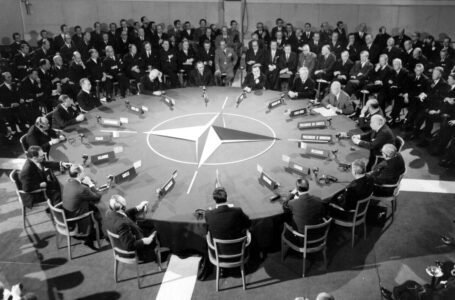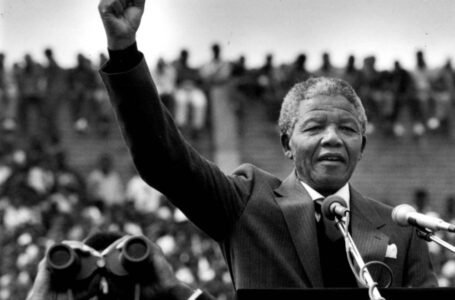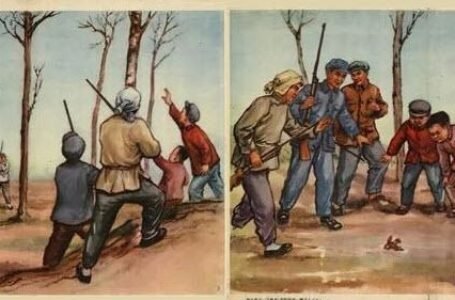Myths as Political Tools: Constructing Legitimacy Through Legendary Pasts

– Ananya Sinha
Through the centuries and between cultures, politicians and states have sought something in addition to raw military power or administrative ability to sanctify their rule. They have also looked for myth. Myths of heroes or gods—borrowed or fabricated ancestors—are yielded into political speech as legitimation. These myths were not just entertainment or sacred history; they were strategic deployments, holding societies together by a common narrative of origins, destiny, and divine intent.
The convergence of politics and myth reveals the way in which power is sustained not just through armies and legislation, but symbols and myth. From Mesopotamian monarchs who traced descent from gods to contemporary states employing old heroes in nation-building, myths have been employed for centuries to political purposes. This essay examines how mythic pasts served as political tools, with examples ranging from ancient to contemporary society, and whether they have any relevance today.
Myth and Legitimacy: A Symbiotic Relationship
Legitimacy—popular acceptance of authority—calls for more than mere force. States and rulers must frame their rule as natural, rightful, or destiny. Myths did exactly that. They tied political regimes to the order of the cosmos, framing kings and rulers as god-appointed or of heroic origin.
While rational systems of legal codes address the individual mind, myth addresses collective imagination. They simplify complex reality into working symbols, investing in sacred or legendary past the power to energize and motivate. When rulers became identified with myths, they placed their domination in an eternal story, not a finite one.
Ancient Civilizations: Gods, Kings, and Heroic Lineages
Mesopotamia: Kings as Cosmic Mediators
In Mesopotamia, kingship and myth were indistinguishable. The Epic of Gilgamesh, composed in the first surviving epic, depicted Gilgamesh as half man, half god—a king who acted as a go-between between mortals and the gods. Subsequent rulers drew upon this identification, tracing divine ancestry or acting as intermediaries between gods and human beings. By locating authority in a mythic lineage, kings positioned themselves as crucial to cosmic order.
Egypt: Pharaohs as Gods on Earth
Myths of Horus, Ra, and Osiris influenced the kingship ideology of ancient Egypt. Pharaohs were not just monarchs; they were gods on earth, as Horus, with a divine mandate to maintain ma’at—the cosmos’s order. Egyptian rulers defended hereditary rule through elaborate myths of divine birth. Temples and monumental inscriptions maintained this account, where political power became a religious obligation decreed by the gods.
Greece and Rome: Myths of Foundation as Civic Identity
Greek city-states were invested with political legitimacy by heroic myth. Athens identified Theseus, the Minotaur-killing hero, as its mythical founder and represented him as the unifier of Attica. Sparta, on the other hand, identified with Heracles, who was depicted to highlight martial excellence and divine approval.
Rome took myth to a statecraft. Virgil’s Aeneid, subsidized by Augustus, told Rome’s origin to have been by Trojan hero Aeneas, chosen by the gods to found a great empire. Representing Augustus as its fulfillment, the Aeneid underpinned him as more than a usurper following civil war, but as rightful heir to Rome’s mythic fate.
Myths of South and East Asia
India: Epic Genealogies and Dharma
In India, Ramayana and Mahabharata epics were the target of political legitimation. Kings identified themselves with Rama, the dharma-upholding ideal king, or the Pandava heroes who personified righteousness. Dynasties derived their origin from solar (Suryavansha) or lunar (Chandravansha) lineages and placed themselves within a cosmic genealogy. These myths politicized political power and made kingship a religious calling and a political profession.
China: Mandate of Heaven and Legendary Ancestors
Myths of the virtuous sage-kings Yao, Shun, and Yu the Great created paradigms of righteous leadership. Subsequent dynasties borrowed such myths to legitimize their own positions by asserting that Heaven granted its mandate to virtuous rulers and took it away from morally corrupt ones. Legendary genealogies linked dynastic families with mythic ancestors and identified dynastic authority within a moral and cosmic context.
Medieval and Early Modern Uses of Myth
Europe: Arthurian Legends and National Identity
King Arthur legends in medieval Europe were used to promote national cohesion. English monarchs frequently used Arthurian imagery to present themselves as successors to a mythic golden age. Tudors, for example, presented themselves as restorers of Arthur’s reign using myth to legitimize power following dynastic strife.
Islamic and Persian Traditions: Mythic Genealogies of Kings
In Persian Shahnameh, rulers were described as lineal descendants of remote mythical kings, whose acts exemplified justice, courage, and divine approval. Dynasties adopted this tale in attempting to locate themselves in a chain of continuity with an illustrious past, eschewing cultural vanity and political legitimacy. Islamic rulers also traditionally traced descent to the clan of the Prophet or Abraham, blurring sacred history with political legitimation.
Myth and the Origins of Nations
As modern nation-states emerged in the 18th and 19th centuries, myths gained a new political function: to produce collective identity. At the time when territorial borders and populations were consolidating in some periods, myths gave unifying stories.
Nationalist movements across Europe would once use to recreate or invoke myths to explain statehood. German Romantics invoked Teutonic legends such as the Nibelungenlied to highlight shared cultural origins. Finns employed the Kalevala, an epic composed of oral legends, as a national epic that was utilized in the definition of the nation. In all these cases, myth created an illusion of enduring nationhood, describing political goals as realization of sacred destinies.
Colonialism and Mythic Resistance
Myths also functioned as instruments of resistance and legitimacy in colonial societies. Rama and other great heroes of Indian epics were invoked in struggles against cultural pride and autonomy. In Africa, myths about ancestral heroism and divine kingship were mobilized to resist colonial inferiority feelings, providing alternative legitimacy bases in native traditions.
The Power and Danger of Myth in Modern Politics
Myths today are just as powerful political tools, though now in secular or symbolic forms. Politicians invoke mythical heroes or golden ages to create unity and legitimize policies. Monuments, holidays, and educational systems socialize these myths into the public consciousness.
But political manipulation of myth is dangerous. Since myths tend to oversimplify and to romanticize, they can equally misrepresent history. Nationalist regimes have occasionally used myth in the interest of expropriating minorities, rationalizing war, or justifying authoritarianism. Thus, for instance, fascist ideologies during the 20th century called on mythic iconography of an earlier purity and destiny in order to explain belligerent policies. Thus, while myths can bring together, they also potentially divide and manipulate.
Myth as a Continuing Political Resource
In spite of the achievements of contemporary epochs in archaeology and historiography, myths are needed to politics because they are an appeal to feeling and identity. Wherever facts of history are mundane or disputed, myths offer a riveting sense of belonging. Great leaders who access myth appeal to anthropology’s long-term memory banks, creating loyalty that isn’t rationalized but visceral.
This is seen in the rhetoric of politics today everywhere, with allusions to “founding fathers,” “golden ages,” or mythic heroes still central. Whether they are dictatorships or democracies, trying to be national integrators or rulers’ justificators, myths still construct legitimacy in ways that legislation cannot.
Conclusion
Myths are not remnants of an antiquated, pre-civilized past; myths are potent tools of politics. By giving rulers gods, heroes, or legends as predecessors, myths have long justified human power and rendered it cosmic or divinely ordained fate. They have validated empires, consolidated nations, and inspired resistance. But myths are double-edged: while they can create commonalities, so too can they generate exclusion and manipulation.
The strength that has endured in myth is the capacity to dissolve time, presenting modern power as an outgrowth of sacred or legendary past. Myths continue to be thus fundamental political instruments—means by which power authenticates itself as not accident, but as timeless. Analysis of how they work is not only necessary to untangle ancient societies, but to analyze critically the myths that still inform politics today.


